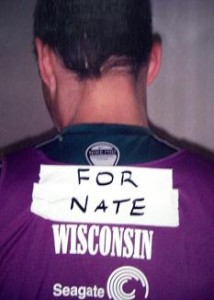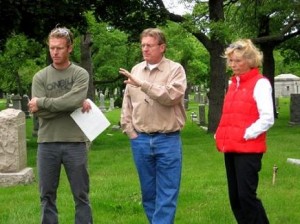Death is coming to all of us. “It is appointed for man to die once” is a quote from Scripture (Hebrews 9:27), and every one of us will eventually succumb to something. To be aware of death’s timetable is to receive a gift, even though at the time it seems more like a curse.
When we know ahead of time, we have the chance to say loving words to the one who will be leaving us. We can also right wrongs. Although it doesn’t come easily to blame ourselves for anything, when a loved one is dying, we can quickly self-judge and desire to make things right.
This burst of good conscience and the apologies it prompts can be positive, but I believe it does more for the one seeking to make things right than the one who is dying. Coming to the death bed of someone we love with a list of “I’m sorry for this and sorry for that” can actually be selfish. We want to absolve ourselves of guilt. But to the one who is dying, such “dumping” might be overwhelming or even seem like too little too late.
During that first night after Nate and I learned he was infected with a rapidly growing stage 4 cancer, my mind flooded with regret. As he slept next to me in the deep fatigue of fatal disease, I lay in bed quietly weeping. Having always wanted to tweak this or that about him, I suddenly felt like a terrible wife. After nearly 40 years of marriage, I should have been long past such shallow thinking and far deeper into practicing unconditional love. Even focusing on myself that first night instead of on him was an indication of my selfishness. Nevertheless, I wanted to right all wrongs a.s.a.p.
When morning came, though, I saw the foolishness of listing my regrets to Nate. What could he say but, “Oh, that’s OK.” It was like fishing for a compliment. The only effective remedy would be to determine, from that moment on, to be the best wife I could be for as much time as we had left together.
I prayed God would control my thinking as Nate and I embarked on what we thought would be a six month journey. “What should I do about all my regrets, Lord?” I asked.
And God answered me. “Be to Nate what I created all wives to be: a helper. If you do that, you’ll please him and also me.” I didn’t have to be a perfect wife, just a helpful one. It was a massive relief, because I knew I could do that.
Beginning that day and every day thereafter, I looked for helping moments. If Nate was struggling to pick up something, I’d step forward with, “Let me help you with that.” (Easy.) If he didn’t have a drink next to his lazy-boy, I went for ice water. (Easy.) If he had trouble getting his shoes on, I kneeled to wiggle them on and tie my “magic bow.” (Easy.) If he was craving spaghetti for dinner, I aborted other plans and made spaghetti. (Easy.)
I don’t list these things to prove I was wonderful. I list them to show how easy God made it for me to finish our marriage without regrets. When doubt snuck in during the night telling me I wouldn’t be able to handle Nate’s increasing needs, I cried out to God, “I don’t think I can do this!”
He gently reminded me, “Remember, all you have to do is help him,” and I would calm down.
When it was all over, I had no regrets about my behavior during the six weeks of Nate’s illness. Simply being a helper was all that was required. Why couldn’t I have been a helper and only a helper (not a manipulator or a controller), throughout the 40 years we spent together? God’s way is always the better way.
“Then the Lord God said, ‘It is not good for the man to be alone; I will make him a helper suitable for him.’ ” (Genesis 2:18)


